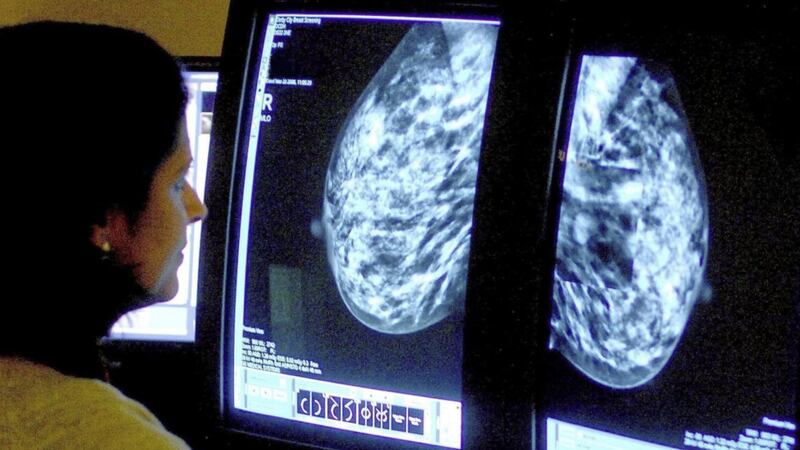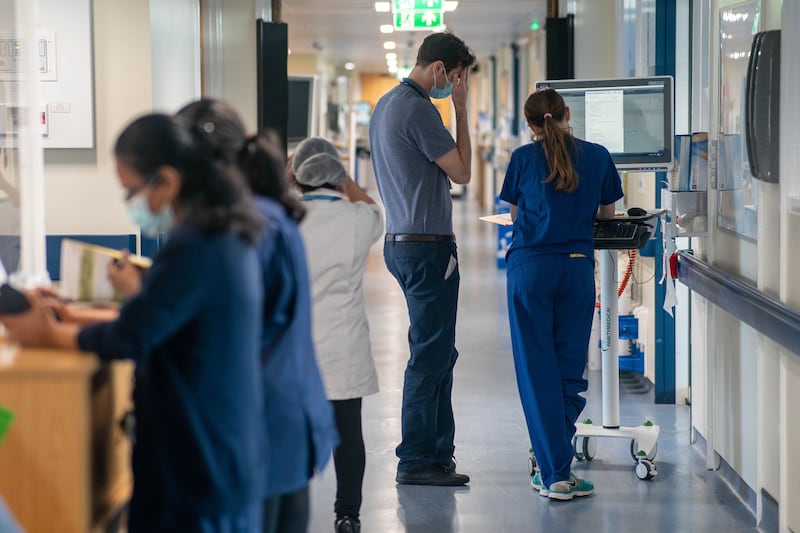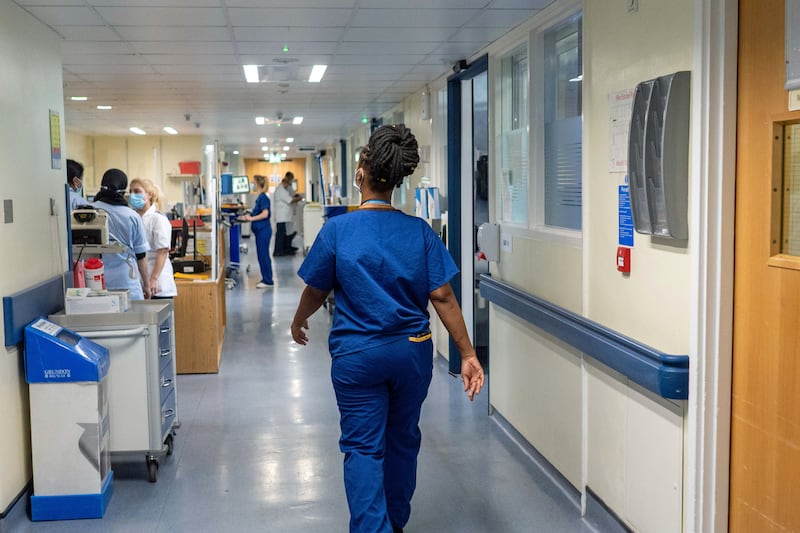WAITING `too long' for cancer treatment is "now the norm" in Northern Ireland, with not a single health trusts managing meet its targets since they were set a decade ago.
Latest Department of Health figures show that in May less than half (48 per cent) of patients with an urgent GP referral for suspected cancer started treatment within 62 days.
The target is 95 per cent.
The number of patients being seen on time had reached 70.8 per cent in June 2018, but the trusts have failed to achieve this since, with the May figure the lowest in more than a year.
This June, 145 patients were waiting longer than 62 days for treatment, the largest proportion (59) of them had been diagnosed with urological cancer.
Last November, the Belfast Trust unveiled a £2 million robot which it said would transform cancer services at Belfast City Hospital.
The Da Vinci robot has the ability to perform surgery on up to 100 urology patients a year, focusing mainly on those suffering from localised prostate cancer and resulting in a shorter stay in hospital.
Margaret Carr of Cancer Research UK called on health authorities to try "innovative initiatives" to help break Northern Ireland's "unacceptable" cycle of failed targets.
"It's now become the norm in Northern Ireland for patients to wait too long for the tests they need," she said.
"Not having enough specialist staff to diagnose cancer is contributing to long waits. In addition to filling vacancies, our Trusts should also turn their attention to innovative initiatives that are cost effective and will help future proof cancer services.
Extending clinic hours or looking at ways to reduce the numbers of those who do not attend their appointments are just some of the ways that could help alleviate the strain.
"To ensure patients are diagnosed quickly and at an earlier stage, it’s vital we see action soon."
There has been a slight fall in the number of patients starting their first `definitive' treatment within the target of 31 days, with 93.3 per cent in June compared with 95.4 per cent in 2018.
The 14-day target for `urgent referrals' of patients with suspect breast cancer fell to 90 per cent in June, from 94.1 per cent last year, despite 73 fewer referrals overall relating to the disease that month.
Individually, brain, sarcoma, head/neck and upper gastrointestinal cancers all achieve 100 per cent of patients starting first treatments within 31 day at some point during the quarter.
Richard Davidson, chief executive of Sarcoma UK, said it was "great to see that in Northern Ireland every sarcoma patient is beginning treatment quickly".
"Those with sarcoma can't afford to wait when it comes to receiving treatment for their cancer. Hearing the diagnosis of sarcoma can be devastating for patients and their loved ones and beginning treatment as soon as possible enables the best chances of success."








